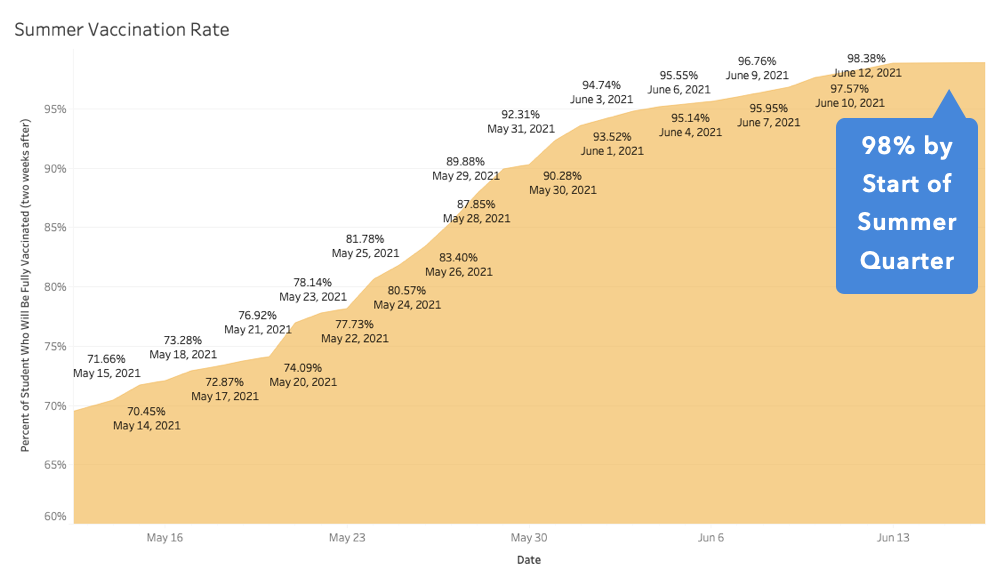According to a new survey conducted by the Associated Students of Stanford University Undergraduate Senate, 71% of responding undergraduates currently on campus and 67% of off-campus respondents are fully vaccinated at least two weeks past the final dose.
The Associated Students of Stanford University (ASSU) report revealed that 98% of respondents who possibly will be on campus during the summer self-reported that they will be fully vaccinated by June 12. The summer quarter begins on June 21. Additionally, 96% of all student respondents on-campus and 93% off-campus disclosed that they will be fully vaccinated by June 11.
The anonymous survey, sent to students via email on Wednesday, compiled 1,020 undergraduate self-reported responses as of 6:00 p.m. on Thursday and is still accepting new student entries.
The survey comes after the CDC cleared the way for fully vaccinated people to go without masks or physical distancing “in any setting.” However, on Thursday, the University has announced they have not changed campus protocol.
“Stanford is reviewing this guidance along with other requirements that apply to the university,” the update read. “We have not made any changes to university protocols at this time but will provide updates to the community as adjustments are made.”
University spokesperson E.J. Miranda added that Stanford plans on providing additional information in the coming weeks. Stanford will require COVID-19 vaccinations for students, faculty and staff on campus this fall, with exceptions for medical or religious reasons.
With feedback from the undergraduate senate, ASSU senator Jonathan Lipman ’21 and aide Emily Park ’24 constructed the four-question survey to get a better understanding of COVID vaccination rates across the Stanford undergraduate population. The survey asked individuals about their vaccination status, living situation, plans to stay on campus during the summer and left space for comments.
“The ASSU is committed to ensuring that student voices are solicited and accurate data is available when decisions are made at the University,” Lipman and Park wrote.
When asked how comfortable they would be sharing their vaccination status with Stanford, 96% of respondents replied that they were comfortable, while 1.5% stated they were “extremely uncomfortable,” specifying in a write-in section that they feared discrimination for not planning on getting vaccinated, their preference of maintaining medical privacy, vaccine anxiety or general distrust, with one student citing the University’s “lack of transparency and honest communication with students over the past year.”
According to the report, many undergraduate students were also eager to ease on-campus restrictions once public health conditions allow. Some respondents wrote a list of requests, including increased access to recreational spaces, removal of outdoor mask mandates and resumption of some in-person classes.
A few others “expressed a desire for campus restrictions to stay in place” due to public health concerns, Lipman and Park wrote.
“Please keep in mind that the ASSU does not make decisions about campus restrictions and that many are set by county and state guidelines,” Lipman and Park concluded in the report.
